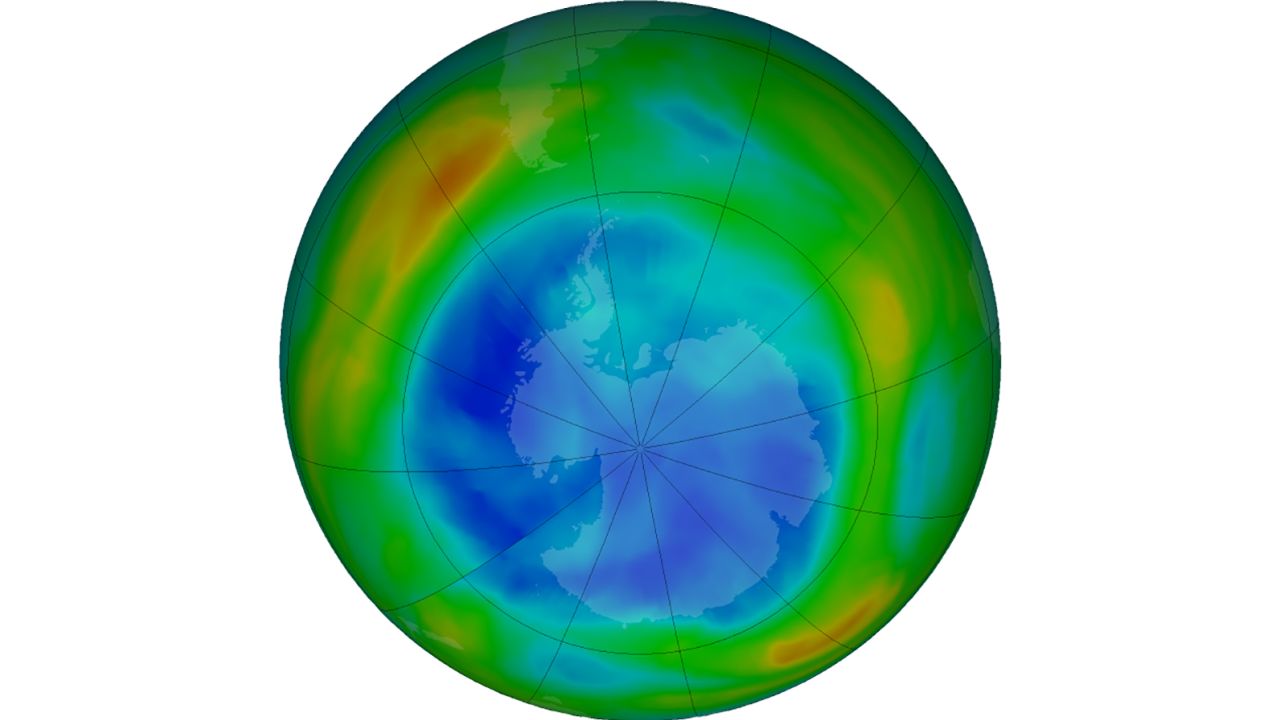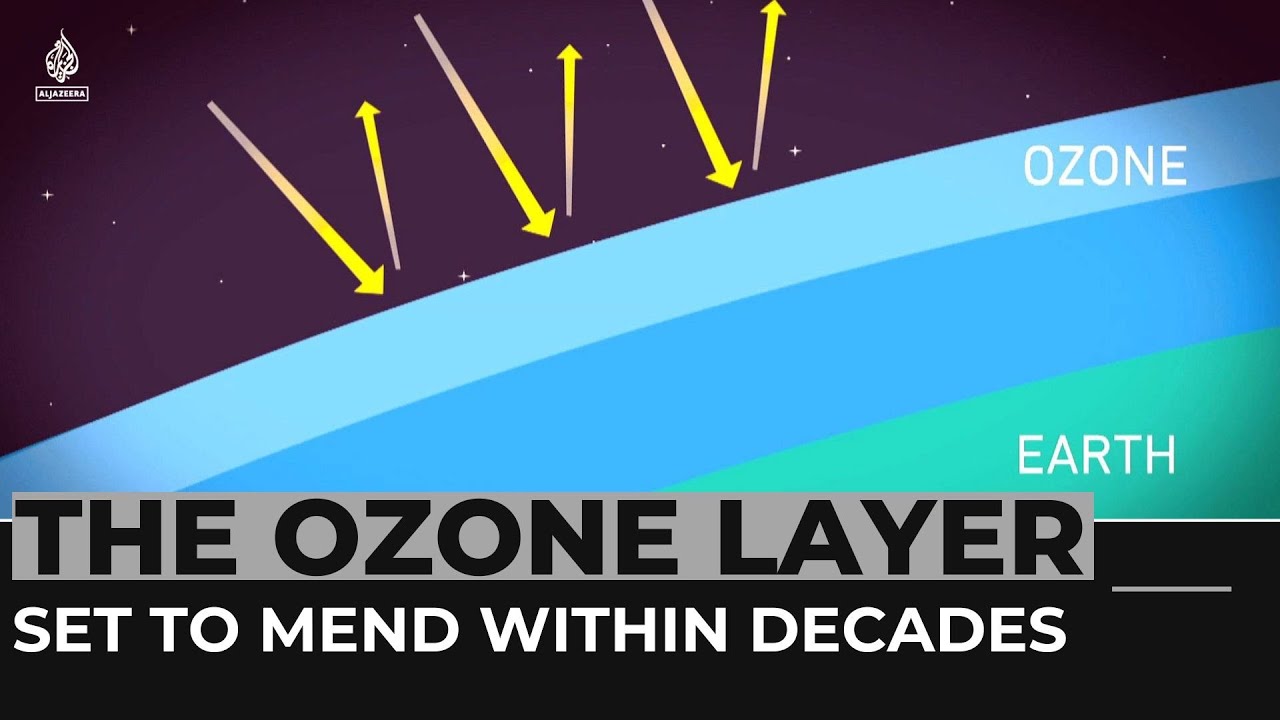UN Watches Ozone Recovery As Ozone-Depleting Chemicals Decline
Everyone should hear this good news: The UN watches ozone recovery as ozone-depleting chemicals decline. This is based on a new UN-backed assessment published last year.
Author:Suleman ShahReviewer:Han JuJan 12, 202310 Shares709 Views

Everyone should hear this good news: The UN watches ozone recovery as ozone-depleting chemicals decline. This is based on a new UN-backed assessment published last year.
The ozone layer is a thin layer of air in the Earth's atmosphere that absorbs nearly all of the sun's damaging UV rays. Scientists have been warning since the late 1980s that ozone-depleting compounds like chlorofluorocarbons (CFCs), which are often found in refrigerators, aerosols, and solvents, are making a hole in this shield.
Extra support from other countries stopped the damage from getting worse. Since the Montreal Protocol went into effect in 1989, which started the phase-out of CFCs and other chemicals that damage the ozone layer, the use of CFCs has dropped by 99%, according to a report from a group of experts that came out on Monday. The assessment found that if global policies stay the same, the ozone layer should get back to where it was in 1980 for most of the world by 2040.
Meg Seki, executive secretary of the U.N. Environment Programme's Ozone Secretariat, said in a statement:
“„The impact the Montreal Protocol has had on climate changemitigation cannot be overstressed. Over the last 35 years, the Protocol has become a true champion for the environment. The assessments and reviews undertaken by the Scientific Assessment Panel remain a vital component of the work of the Protocol that helps inform policy and decision-makers.- Meg Seki, executive secretary of the U.N. Environment Programme's Ozone Secretariat
In the Arctic, recovery won't happen until 2045, and in the Antarctic, it won't happen until 2066. Secretary General for the World Meteorological Organization, Petteri Taalas, stated:
“„Ozone action sets a precedent for climate action. Our success in phasing out ozone-eating chemicals shows us what can and must be done - as a matter of urgency – to transition away from fossil fuels, reduce greenhouse gases and so limit temperature increase.- Secretary General for the World Meteorological Organization Petteri Taalas
According to a 2021 study published in the journal Nature, ozone-depleting chemicals are also significant greenhouse gases. Without a ban, the Earth may have seen additional warming of up to 1 degree Celsius.
Since the industrial revolution, the Earth has warmed by about 1.2 degrees Celsius, and scientists have warned that this should be kept to 1.5 degrees Celsius in order to avoid the worst repercussions of the climate problem. Scientists say exceeding 1.5 degrees Celsius would significantly raise the likelihood of major droughts, wildfires, floods, and food shortages.
Ozone Layer Slowly Healing According To UN Report

UN report: Ozone layer slowly healing, set to mend within decades
What Can You Do To Help Protect The Ozone Layer?
Scientists have seen a big drop in the amount of ozone in the layer over Antarctica every spring since 1975. In 1987, an international expedition found that half of Antarctica's ozone had disappeared over an area twice the size of the United States, leaving a huge "hole" in the ozone layer. This was a seriously alarming development.
At an altitude of 18 km, the normal amount of ozone dropped by up to 50%. At mid-latitudes in the Northern Hemisphere, the amount of ozone was found to have dropped by up to 3%.
Why should you care? Ultraviolet (UV) radiation from the sun is harmful to us, but the ozone molecules absorb it before it can reach the earth's surface. As the ozone layer gets thinner, more UV radiation will reach the surface of the earth, which will hurt both human healthand the environment.
The most important effects will be an increase in skin cancer, cataracts, and damage to the immune systemand the earth's ecosystem. Even though most ozone-depleting substances (ODS) are used by businesses or industries, people can help in the following ways:
- Buy air conditioners and fridges that don't use HCFCs as refrigerants.
- Buy aerosol products whose propellants don't use HCFCs or CFCs.
- Check and fix your air conditioner and refrigerator on a regular basis to prevent and reduce the amount of refrigerant that leaks out.
- When it comes to existing air-conditioning and refrigeration appliances that use HCFCs or CFCs, the refrigerant should be recovered or recycled whenever the equipment is overhauled. It should also be considered to replace or retrofit such equipment to run on non-HCFC refrigerant.
- When fixing car air conditioners, make sure the refrigerants are correctly recovered and recycled instead of being let out into the air.
Final Words
In this assessment, which comes out every four years, scientists looked at the possibility of solar geoengineering for the first time. Solar geoengineering is the idea of trying to stop global warming by doing things like spraying aerosols into the stratosphere to reflect sunlight away from the earth's atmosphere. They found that putting aerosols into the stratosphere could help slow climate change, but they warned there could be unintended effects.
The report, which comes out every four years, found that using the technologycould also change the temperatures, circulation, and rates of ozone production, destruction, and movement in the stratosphere.

Suleman Shah
Author
Suleman Shah is a researcher and freelance writer. As a researcher, he has worked with MNS University of Agriculture, Multan (Pakistan) and Texas A & M University (USA). He regularly writes science articles and blogs for science news website immersse.com and open access publishers OA Publishing London and Scientific Times. He loves to keep himself updated on scientific developments and convert these developments into everyday language to update the readers about the developments in the scientific era. His primary research focus is Plant sciences, and he contributed to this field by publishing his research in scientific journals and presenting his work at many Conferences.
Shah graduated from the University of Agriculture Faisalabad (Pakistan) and started his professional carrier with Jaffer Agro Services and later with the Agriculture Department of the Government of Pakistan. His research interest compelled and attracted him to proceed with his carrier in Plant sciences research. So, he started his Ph.D. in Soil Science at MNS University of Agriculture Multan (Pakistan). Later, he started working as a visiting scholar with Texas A&M University (USA).
Shah’s experience with big Open Excess publishers like Springers, Frontiers, MDPI, etc., testified to his belief in Open Access as a barrier-removing mechanism between researchers and the readers of their research. Shah believes that Open Access is revolutionizing the publication process and benefitting research in all fields.

Han Ju
Reviewer
Hello! I'm Han Ju, the heart behind World Wide Journals. My life is a unique tapestry woven from the threads of news, spirituality, and science, enriched by melodies from my guitar. Raised amidst tales of the ancient and the arcane, I developed a keen eye for the stories that truly matter. Through my work, I seek to bridge the seen with the unseen, marrying the rigor of science with the depth of spirituality.
Each article at World Wide Journals is a piece of this ongoing quest, blending analysis with personal reflection. Whether exploring quantum frontiers or strumming chords under the stars, my aim is to inspire and provoke thought, inviting you into a world where every discovery is a note in the grand symphony of existence.
Welcome aboard this journey of insight and exploration, where curiosity leads and music guides.
Latest Articles
Popular Articles